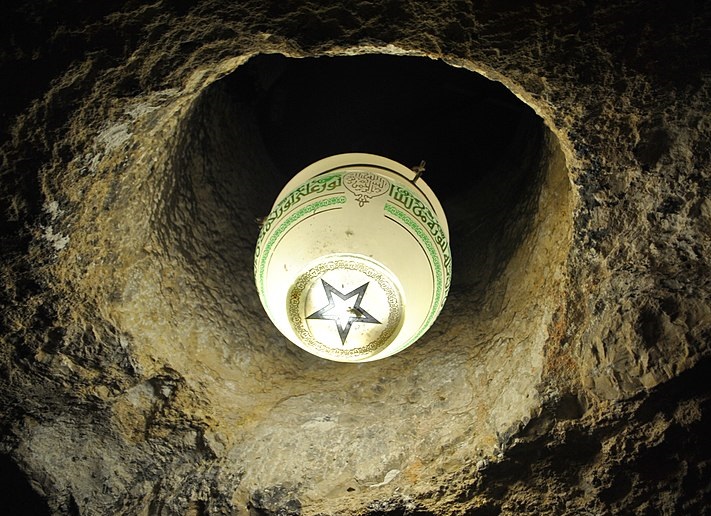“The elder shall serve the younger”:
Esau (later, Edom), was the firstborn of Rebekah and Isaac, with Jacob (later, Israel) born holding the heel of his twin.
The name Jacob means “he grasps the heel”. It has since become a Hebrew idiom for deceptive behavior.
Jacob/Israel was the preferred child of their mother.
Esau traded the birthright of the firstborn to Jacob for a bowl of pottage.
In failing age, Isaac intended to bless Esau with the birthright if it was the will of Elohim. To test if it was the will of Elohim that Esau should be blessed with the birthright, Isaac asked Esau/Edom to hunt wild game (venison, or “benison” meaning “blessing”) with which to prepare his favourite stew.
Rebecca overheard Isaac instructing Esau and instructed Jacob to quickly slaughter two baby goats from the farm. She prepared goat stew for Isaac in secrecy, and dressed Jacob in furs to create the perception in the blind Isaac that Jacob was his hairy brother Esau, returned from a successful hunt.
Jacob/Israel delivered the meal, and was awarded the birthright through deception.
The “nations” of Esau/Edom (Idumæans) and Jacob/Israel (Israel) continued to have an inequal relationship until Herodians - Idumæans, and therefore ineligible authorities of Israel - killed off the rightful heirs in the Branch prophecy.
As I have posted previously, there is only one list of the “Ten Commandments” in the Bible.
The “Ten Commandments” are only recorded in Exodus 34, immediately preceding instructions as to how to build the Ark Of The Covenant for their storage.
The Tenth Commandment is found within verse 26:
“Not boil a young goat in its mother’s milk.”
https://biblehub.com/text/exodus/34-26.htm
It is from this prohibition that later interpreters - having lost the knowledge associated with the dietary restriction - proscribed that Jews must not eat meat with milk.
Dietary restrictions in Judaism are almost exclusively symbolic for the purpose of teaching a moral lesson. The Tenth Commandment is no exception.
Isaac had the intention of asking the will of Elohim by means of a sign - whether or not Esau’s hunt was successful - to decide which of the brothers ought to be considered the rightful heir of the firstborn blessing.
Rebekah preferred Jacob, and conspired with him to circumvent the will of Elohim through deceiving her husband Isaac.
Rebekah and Jacob were under considerable time constraints. If Esau took game quickly, he may return in time to receive the blessing, or to foil their plans.
Even though pressed for time, and only needing to produce a single bowl of stew, Rebekah specifically insisted that Jacob must kill a second baby goat. This was necessary to her ritual, wherein the two baby goats were symbolic of the brothers, Esau and Jacob. This idolatry or witchcraft was for the express purpose of ensuring that the desires of Rebekah and Jacob would be held most important - irrespective of loyalty to the will of Elohim.
The symbolism of “mother’s milk” (the influence of the mother) cooking the two babies in same pot as indistinct from each other, is obvious when realized. Rebekah sowed many seeds of emnity within her own family. Esau was sure to return (whether successful or not), and Isaac was certain to realize that he had been tricked by his wife and son. This schism lasted - culturally - at least until (and contributed to) the fall of the Second Temple.
Thou shalt obey the will of Elohim.

